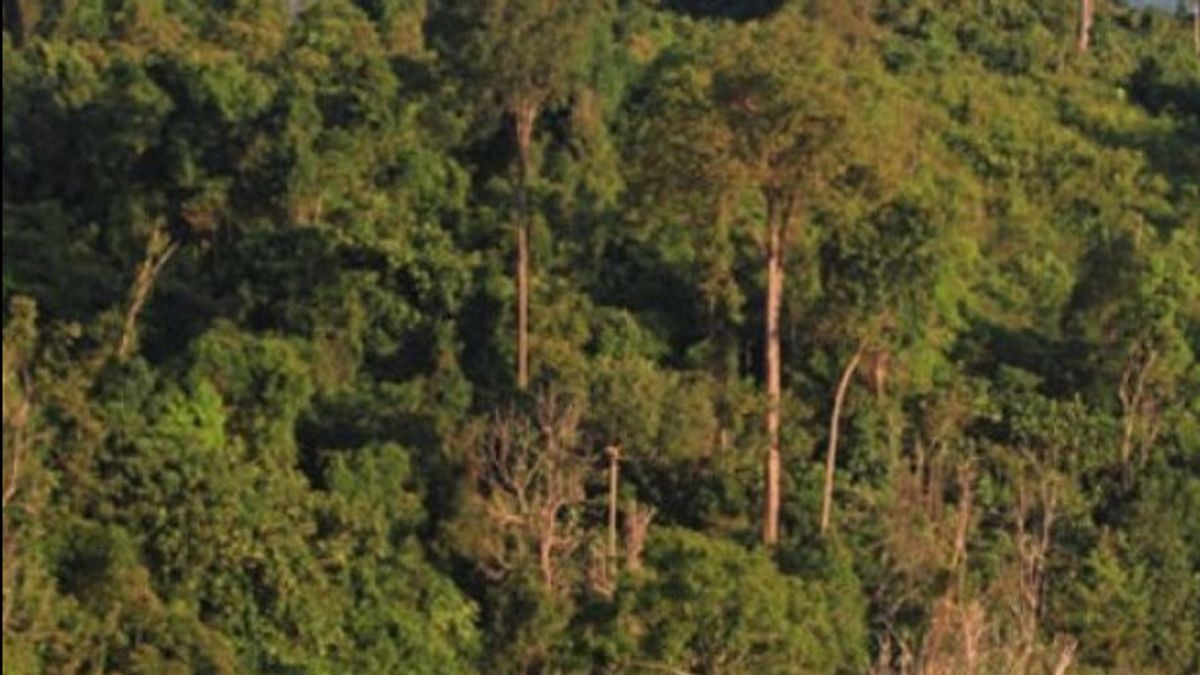SOPPENG - Natu bin Takka (75) with his son and brother-in-law in Soppeng Regency, South Sulawesi (Sulsel) was sentenced to 3 months in prison. This farmer was found guilty of cutting down 55 teak trees planted in his own garden.
"He felled 55 teak trees in the defendant's garden," Ridwan, Head of the Division of Economic, Social and Cultural Rights (LBH) Makassar, told reporters, Friday, February 19.
Ridwan, who is also the defendant's legal adviser, said the case started when the Natu farmer and his son and brother-in-law cut down teak trees that were said to be part of a protected forest area by the government.
"At first in this case, Pak Natu, together with his son and brother-in-law, chopped down a tree which he allegedly claimed to have been in a protected forest area, so that around February 2020, officers from the Forestry Service were approached," he said.
Natu's grandfather, son and brother-in-law were reportedly prosecuted at the Soppeng Police. The suspicion is that the felling of trees without the permission of the relevant authorities, Prevention and Eradication of Forest Destruction (UUP3H).
During the trial, Natu's grandfather, son and brother-in-law were sentenced to 3 months in prison by the panel of judges at the Watansoppeng District Court on Tuesday, February 19.
"Then in the trial process later, the court decided that the defendant was found guilty, felling trees in the forest area without permission from the authorities, then sentenced to 3 months in prison," said Ridwan.
The three were charged with carrying out illegal logging by cutting trees, transporting and carrying wood cutting tools based on the provisions.
Natu's grandfather, son and brother-in-law were charged with Article 82 paragraph (1) letter b or Article 82 paragraph (2) or Article 83 paragraph (1) letter a or Article 84 paragraph (1) or Article 84 paragraph (3) Law Number 18 2013 concerning the Prevention and Eradication of Forest Destruction (UU P3H).
In fact, the farmer is cutting trees for the purposes of building a house (not for commercial purposes).
"But there are several facts, which were revealed in the trial that Mr. Natu was cutting trees not for commercial purposes. Not for sale, but only to use it to build his son's house, whose name was Pak Aryo. Pak Aryo was also the defendant in this case" he continued.
In addition, Natu farmers' teak gardens have been managed from generation to generation. During managing the garden. Every year, Natu actively pays the PBB from 1997 to 2020.
"He paid the tax from 1997, even he last underwent a legal process, he still paid in 2020 but still paid," he said.
The facts revealed in the trial proved that the defendant's actions did not qualify as a legal subject as regulated in the P3H Law.
The lawyer said that Natu's actions were not a criminal act. Moreover, Natu and his son and brother-in-law are among the people who are exempted according to Article 1 number 6 of the P3H Law.
"Whereas there are several facts that the panel of judges did not consider. For example, the existence of impunity for these defendants who are exempted under the P3H Law as regulated in Article 1 point 6 is excluded from those who live for generations in the area who carry out logging for non-commercial use. , "said Ridwan.
The English, Chinese, Japanese, Arabic, and French versions are automatically generated by the AI. So there may still be inaccuracies in translating, please always see Indonesian as our main language. (system supported by DigitalSiber.id)













